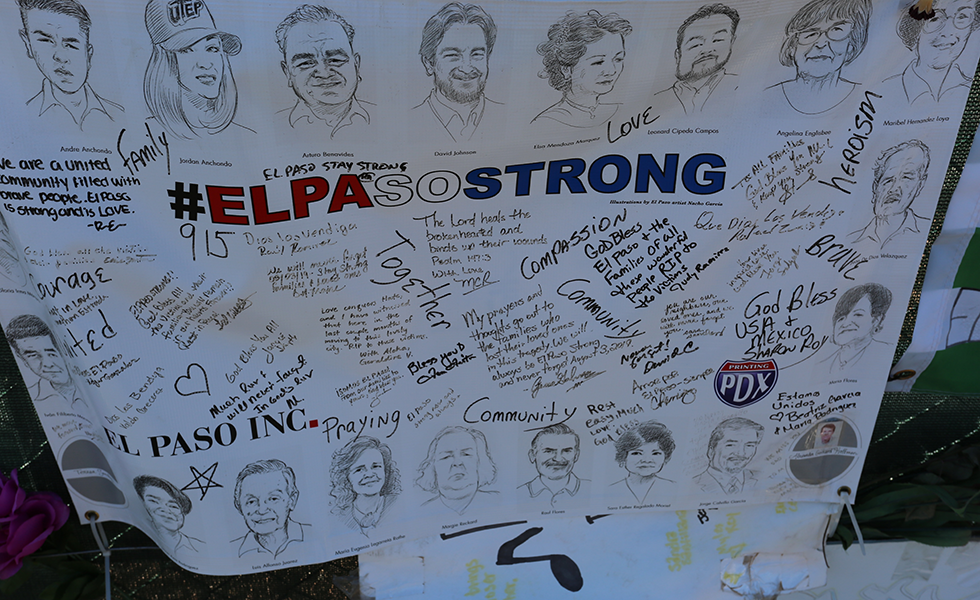As I write this editorial, I’m exactly three months into my tenure at the Texas Observer. In that time, I’ve had the good fortune to hear readers express genuine love for the state—scabs, scars, and all—and for the work of journalists like ours, who they say help make Texas a better, more informed place. I’m honored by their affection for the Observer. I’m humbled by the opportunity to be part of it. And if I’m honest, I have a healthy fear of the responsibility that comes with leading a media organization.
But a bigger fear has dwarfed that. One that infiltrated my thoughts on August 3, 2019, when a man allegedly drove 650 miles from Allen to El Paso and committed the largest massacre of Latinx people in U.S. history. The acute horror of what happened to the El Paso community deeply saddened me, as it did countless others. And, as a Latina who proudly embraces my brown skin and my cultural heritage, it also deeply frightened me.
While I’ve construed minor grievances as possibly racist slights, no person has ever explicitly harmed me or insulted me because of my ethnicity. This is an extraordinarily lucky and privileged claim. Thousands of black and brown people all over America have been marginalized, criminalized, and even killed because of their race. Still, people like to believe things are getting better—but what happened in El Paso underscores just how little has changed.

In the aftermath of the shooting, El Paso writer and historian David Dorado Romo reminded readers that “low-intensity warfare against people of Mexican descent has been going on for a long time on the border.” He wrote that his hometown “has now become ground zero for a Blitzkrieg, a lighting-speed war waged by the Trump government against fronterizos.” He ended by expressing a sort of new confusion: “Things are moving so fast it’s hard for fronterizo populations to know how to respond.”
I felt this same disorientation. So did other Latinx journalists. “After El Paso was terrorized, I’m still reeling,” wrote the Texas Tribune’s Alexa Ura on Twitter. “It feels so personal. It feels personal because I’m brown. Because I’m from the border. … Because the terror that I’m reporting on is not abstract.” Cat Cardenas, an editor at Texas Monthly, grappled with the same issues, asking how the Latinx population could defend itself against stereotypes and misinformation peddled by the most powerful people and entities in the world. “I don’t have an answer,” she wrote. None of us do. But Cardenas provided words of comfort to protect ourselves against these growing uncertainties. “I know that many of us are scared, many of us are angry, and many of us feel defeated. But I also know that we are strong.”
She’s right. We are all of these things. Scared, angry, downtrodden, strong. When these emotions mix, they can turn into a different feeling: determination. To do our best work, to shed light on truth in hard times, and to make this state a better, more informed place.
Read more from the Observer:
-
The Ghosts of Jefferson: This East Texas tourist town calls itself “the most haunted town in Texas,” but its whitewashed ghost stories elide a complex racial history.
-
Landowners Got One Hill Country Oil Pipeline Moved. But Can They Do It Again?: Rule No. 1 of averting pipeline routes: Always bring a high-powered, politically connected oil and gas executive to the negotiating table.
-
Short Story Contest Winner: ‘Dear Mr. Gottlieb’: Alan Sincic’s story is a searing indictment of corporate America.







